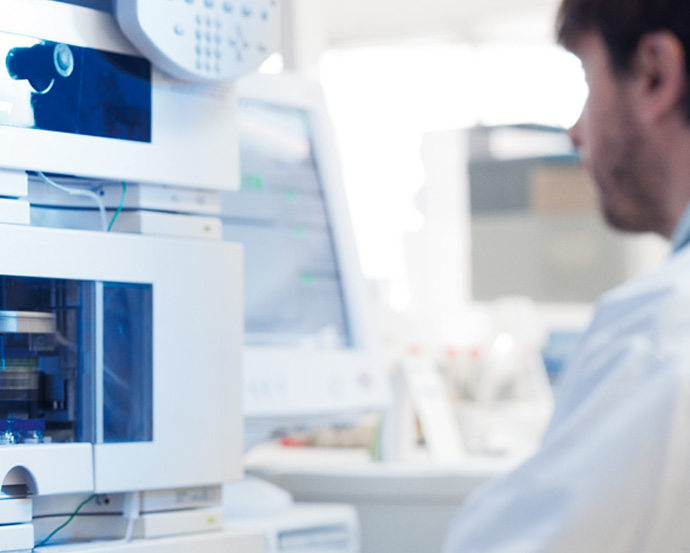
Our Quality Control Laboratory is located in single facilities of more than 500 m2. Our great human team and technological equipment work for excellence.
In addition to complying with the regulations established by the Health Authorities and the legislation in force, our products are subjected to strict quality controls in order to provide maximum quality guarantees to our consumers.
We work in our Quality Control Laboratory with food, products based on medicinal plants and dietary supplements.
Therefore, the best techniques and the best technologies are essential to cover all the needs of our company.
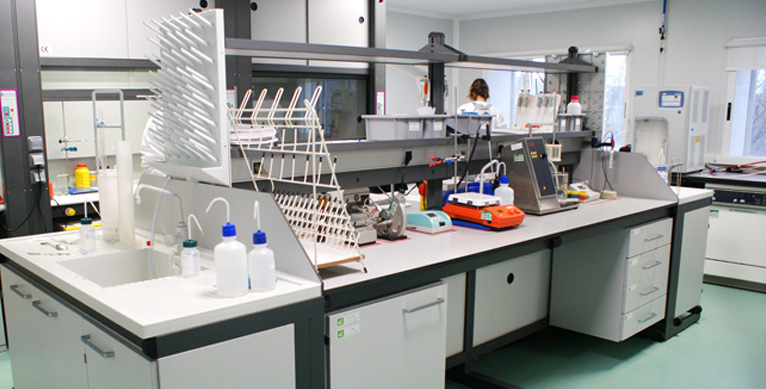
High Pressure Liquid Chromatography: H.P.L.C.
This equipment is used to quantify an infinite number of active principles of plants.
It is also used to quantify mycotoxins (e.g. aflatoxins in nuts), vitamins, organic acids, sugars, etc.
Mass spectrometry coupled to liquid chromatography H.P.L.C-ME/MS
This analytical technique is used to quantify the active principles of plants, being able to accurately identify all the compounds, knowing their molecular weight.
It is used in research and development to identify new unknown molecules in plants that could be responsible for certain therapeutic effects.
It can also be used to analyze amino acids, antibiotics, plant hormones and an infinite number of compounds that are beneficial or harmful to humans.
Atomic Absorption Spectroscopy
It is used for the analysis of minerals and trace elements (such as calcium, potassium, magnesium, copper, zinc, iron, sodium, etc.).
It is also used to quantify heavy metals (lead, cadmium, mercury, arsenic, etc.), guaranteeing that the raw materials and products we produce are safe and do not pose a health risk.
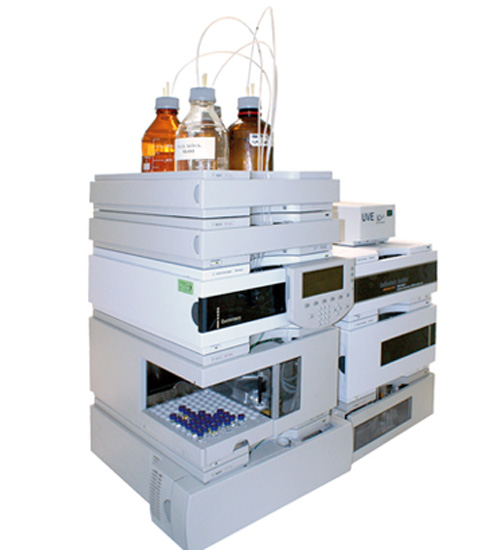
High Pressure Liquid Chromatography: H.P.L.C.
Real-time quantitative PCR or DNA analyzer
This technique is used to detect transgenic plants or genetically modified organisms (GMO). We use this technique to verify that the raw materials provided by our suppliers are free of GMOs and, therefore, comply with the Organic Production regulations.
This technique can also be used to identify the different plant species by searching for their characteristic DNA, and to find dangerous microorganisms in the products by searching for their DNA, etc.
High-Performance Thin Layer Chromatography (HPTLC) and densitometry
It uses silica gel plates to separate plant compounds. This thin layer chromatography (HPTLC) allows to obtain a qualitative image characteristic of each plant, allowing to detect adulterations in a very short time.
It is often used to identify many species of crushed plants we buy, since it is impossible to grow them ourselves due to climatic conditions.
Climate chamber or Accelerated aging chamber
This equipment allows us to control temperature and humidity very precisely, being able to establish in its interior unfavorable conditions for the preservation of products.
Thus, we can predict the shelf life of food products, analyze how the active ingredients of phytotherapy products degrade in adverse conditions of temperature and humidity, etc.
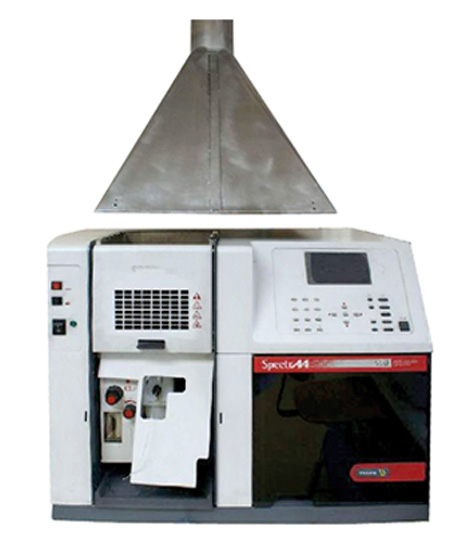
Atomic Absorption Spectroscopy
Gas chromatograph-mass spectrometer GC-MS/MS
This technology allows us to quantify traces of solvents, fatty acids, etc.
We use it mainly to detect pesticides, as it allows us to identify more than one hundred pesticides simultaneously, making it very useful to know whether a raw material contains pesticides or is 100% organic.
Scintillation counter
This small device allows us to make a radioactivity analysis of any product, while quantifying the magnitude of the radiation in case it exists.
In Soria Natural we use it mainly to verify that the algae and plants that do not come from our fields, come from safe places, and do not present levels of radioactivity that could pose a serious health risk.
Microbiological analysis
Soria Natural carries out microbiological analyses in an isolated room within the laboratory, which is equipped with a laminar flow cabinet.
Microbiological analyses are performed to ensure the quality of the products during their shelf life.
A multitude of microorganisms (aerobes, molds and yeasts, enterobacteria, etc.) are quantified, both in raw materials and in finished products.
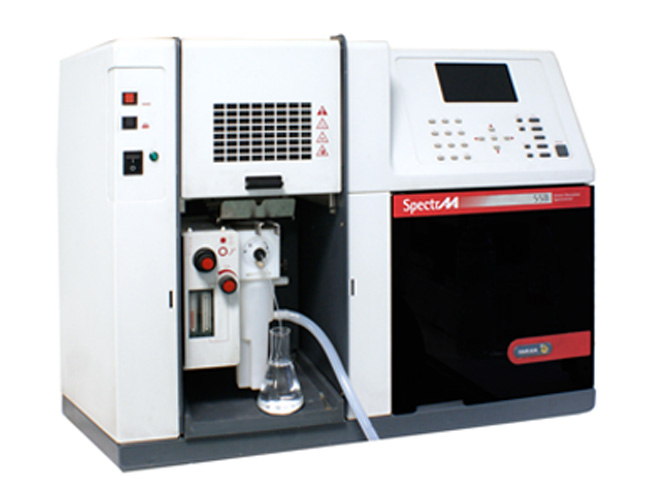
Gas chromatograph-mass spectrometer GC-MS/MS

A distinctive element in our phytotherapy products.
EDS (Efficient Daily Supply) indicates the average amount of active ingredients per daily intake that is recommended for a particular phytotherapy product to help us improve our health.
As we work with natural products, we adjust the formulas in each batch, so that we can guarantee that the therapeutic effect and concentration is the same in all of them.
Thus, we can certify that our products always provide the same amount of active ingredients.
We analyze each batch of raw material we receive, as well as the batches of semi-finished products with the extracts we produce, modifying and adjusting the amount of plant or its extracts according to the concentration of active ingredients obtained.
The quality of Soria Natural products and their therapeutic effect is always guaranteed.
Soria Natural products are subjected to the most rigorous Quality Controls in our Laboratory, among which are included:

